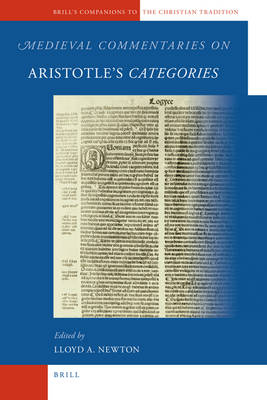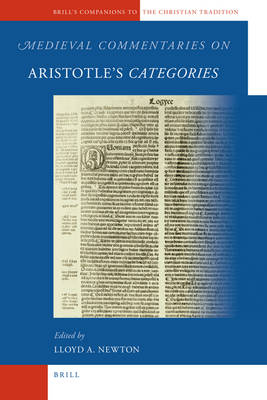
- Afhalen na 1 uur in een winkel met voorraad
- Gratis thuislevering in België vanaf € 30
- Ruim aanbod met 7 miljoen producten
- Afhalen na 1 uur in een winkel met voorraad
- Gratis thuislevering in België vanaf € 30
- Ruim aanbod met 7 miljoen producten
Medieval Commentaries on Aristotle's Categories
€ 314,45
+ 628 punten
Omschrijving
Medieval commentary writing has often been described as a way of "doing philosophy," and not without reason. The various commentaries on Aristotle's Categories we have from this period did not simply elaborate a dialectical exercise for training students; rather, they provided their authors with an unparalleled opportunity to work through crucial philosophical problems, many of which remain with us today. As such, this unique commentary tradition is important not only in its own right, but also to the history and development of philosophy as a whole. The contributors to this volume take a fresh look at it, examining a wide range of medieval commentators, from Simplicius to John Wyclif, and discussing such issues as the compatibility of Platonism with Aristotelianism; the influence of Avicenna; the relationship between grammar, logic, and metaphysics; the number of the categories; the status of the categories as a science realism vs. nominalism; and the relationship between categories.
Specificaties
Betrokkenen
- Uitgeverij:
Inhoud
- Aantal bladzijden:
- 439
- Taal:
- Engels
- Reeks:
- Reeksnummer:
- nr. 10
Eigenschappen
- Productcode (EAN):
- 9789004167520
- Verschijningsdatum:
- 1/06/2008
- Uitvoering:
- Hardcover
- Formaat:
- Genaaid
- Afmetingen:
- 165 mm x 244 mm
- Gewicht:
- 839 g

Alleen bij Standaard Boekhandel
+ 628 punten op je klantenkaart van Standaard Boekhandel
Beoordelingen
We publiceren alleen reviews die voldoen aan de voorwaarden voor reviews. Bekijk onze voorwaarden voor reviews.









